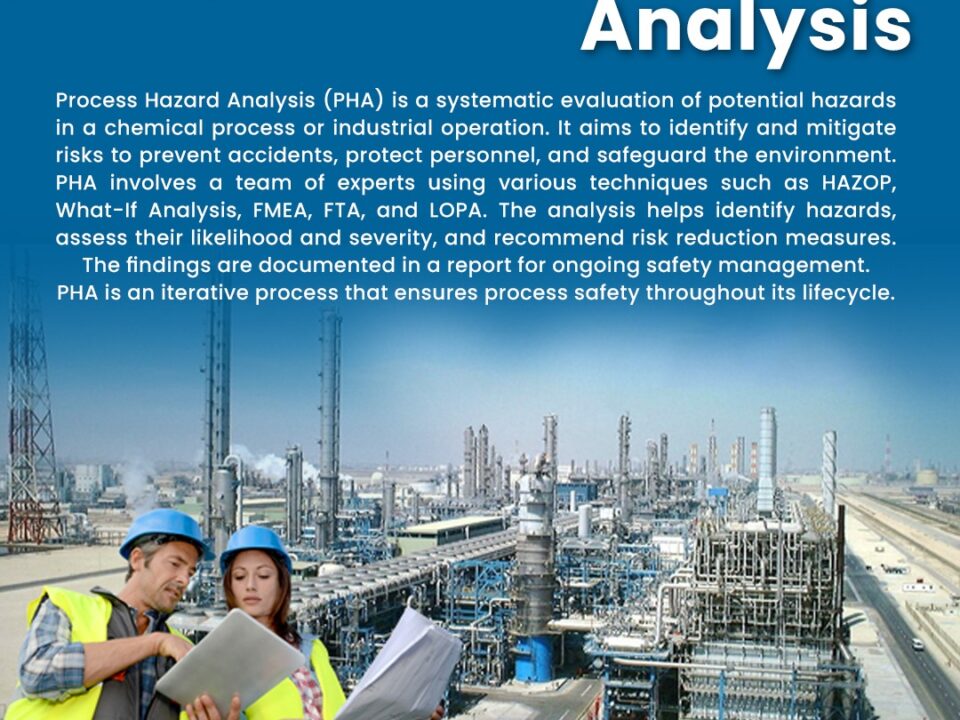Effective Waste & Garbage Management Systems Guide

Comprehensive Fire Safety Audit Checklist and Report
July 30, 2024
Understanding the Basics: What is a Sustainability Audit and Why Does Your Business Need One
September 5, 2024Introduction to Waste Management
What is the importance of waste management in modern society?
Waste management is a critical aspect of environmental sustainability and public health. It involves the collection, transportation, and disposal of waste in a way that minimizes its impact on the environment. An effective waste management system ensures that waste is handled in a safe and efficient manner, reducing pollution and promoting recycling and reuse.
How does a waste management system contribute to environmental sustainability?
A waste management system plays a vital role in reducing the environmental footprint of waste. By implementing various methods of waste management, such as recycling, composting, and incineration, waste can be processed in ways that minimize harm to the environment. The integration of a waste management model into urban planning helps cities manage waste sustainably, reducing landfill use and promoting a circular economy.
Types of Waste Management
What are the different types of waste management methods?
There are several types of waste management that cater to different kinds of waste. These include:
- Solid waste management: Focuses on the disposal of household and industrial waste.
- Liquid waste management: Deals with wastewater treatment.
- Hazardous waste management: Involves the safe disposal of dangerous materials.
- Recycling and composting: These are methods of waste management that convert waste into reusable materials.
How do various waste management systems handle different types of waste?
Different waste management systems are designed to handle specific types of waste management processes. For instance, a garbage management system may focus on the segregation of waste at the source, ensuring that recyclables are separated from organic waste. Each waste management system is tailored to optimize the handling of particular waste types, ensuring efficiency and environmental safety.
What are the benefits of using specific types of waste management for different waste categories?
Using specific types of waste management allows for more effective processing and disposal of waste. For example, hazardous waste requires specialized waste management methods to prevent environmental contamination. By applying the correct methods of waste management for each category, the overall efficiency of the waste management system is enhanced, leading to better outcomes for the environment and public health.
Methods of Waste Management
What are the most effective methods of waste management?
The most effective methods of waste management include recycling, composting, incineration, and landfilling. Recycling and composting are sustainable methods of waste management that convert waste into new products or organic material. Incineration reduces the volume of waste, while landfilling is often used for waste that cannot be processed by other methods of waste management.
How do traditional methods of waste management compare to modern approaches?
Traditional methods of waste management often relied on landfilling and open burning, which had significant environmental drawbacks. Modern waste management systems incorporate advanced technologies such as waste-to-energy plants and automated sorting facilities, making them more efficient and less harmful to the environment. These modern methods of waste management are integral to a comprehensive waste management system.
Which methods of waste management are most sustainable?
Sustainable methods of waste management include recycling, composting, and anaerobic digestion. These methods of waste management reduce the need for landfills, decrease greenhouse gas emissions, and promote the reuse of materials. Integrating these practices into a waste management system ensures that waste is managed in an environmentally responsible way.
Waste Management Systems
What constitutes an efficient waste management system?
An efficient waste management system is one that effectively collects, processes, and disposes of waste with minimal environmental impact. It should incorporate multiple methods of waste management to handle various types of waste. The system must be adaptable to changes in waste generation patterns and technological advancements, ensuring that waste is managed in the most effective way possible.
How can a waste management system be optimized for urban environments?
Optimizing a waste management system for urban environments involves integrating technologies like smart bins, waste tracking, and automated sorting facilities. These innovations can make waste management more efficient by reducing the amount of waste sent to landfills and increasing recycling rates. Additionally, urban waste management systems must be designed to handle the high volume of waste generated in cities, incorporating diverse methods of waste management to meet the needs of various waste streams.
What are the key components of a successful waste management system?
A successful waste management system includes:
- Efficient collection and transportation infrastructure.
- Advanced methods of waste management, such as recycling and waste-to-energy.
- Public education on waste and its management.
- A well-structured waste management model that guides the overall process.
Waste Management Models
What are the different waste management models in use today?
There are several waste management models in use, including the linear model, where waste is generated, used, and disposed of, and the circular economy model, which focuses on reusing and recycling materials to minimize waste. Each waste management model has its strengths and is applied based on the specific needs of the waste management system.
How can the circular economy model be applied to waste management?
The circular economy waste management model emphasizes keeping resources in use for as long as possible through recycling and reuse. This model is integrated into waste management systems by promoting the reduction of waste at the source, encouraging recycling, and designing products for longer life cycles. By applying this waste management model, the environmental impact of waste can be significantly reduced.
What are the advantages of using a specific waste management model over others?
The advantage of using a specific waste management model lies in its ability to meet the unique needs of a given waste management system. For instance, a linear model may be simpler to implement, but the circular economy model offers greater long-term environmental benefits. Choosing the right waste management model depends on the goals of the waste management system and the types of waste it handles.
Garbage Management System
What distinguishes a garbage management system from other waste management systems?
A garbage management system specifically focuses on the handling and disposal of everyday household waste. While it is a subset of the broader waste management system, it is designed to manage the high volume of organic and inorganic waste generated by households. The garbage management system ensures that waste is collected, processed, and disposed of efficiently, minimizing its impact on the environment.
How does a garbage management system fit into broader waste management strategies?
A garbage management system is an integral part of the overall waste management system, ensuring that household waste is managed alongside industrial and hazardous waste. By integrating the garbage management system with other waste management models, cities can create a comprehensive approach to waste and its management, addressing all types of waste streams.
What are the challenges in implementing a garbage management system effectively?
Implementing a garbage management system effectively can be challenging due to factors such as population density, waste collection logistics, and public participation. To overcome these challenges, a waste management system must be adaptable, incorporating diverse methods of waste management to ensure that all waste is handled efficiently. Public education and engagement are also crucial to the success of a garbage management system.
Observation of Waste Management
What are the best practices for observing waste management systems?
Best practices for observation of waste management systems include regular monitoring of waste collection and processing, assessing the efficiency of the waste management model, and evaluating the effectiveness of the methods of waste management used. By consistently observing the waste management system, areas for improvement can be identified, leading to better overall waste management.
How can the observation of waste management processes lead to better outcomes?
The observation of waste management processes allows for the identification of inefficiencies and the development of strategies to address them. Regular observation of waste management helps ensure that the waste management system operates as intended, reducing waste and improving environmental outcomes. By refining methods of waste management based on observations, waste management can become more effective and sustainable.
What tools and technologies assist in the observation of waste management?
Modern technologies such as waste tracking systems, GPS-enabled collection vehicles, and data analytics play a crucial role in the observation of waste management. These tools provide real-time data that can be used to optimize the waste management system and improve the efficiency of waste and its management.
Uses of Waste Management
What are the primary uses of waste management in urban planning?
In urban planning, uses of waste management include reducing the environmental impact of waste, optimizing waste collection routes, and ensuring that waste is processed in a way that supports sustainable development. Effective waste management is essential for maintaining clean and livable cities.
How does effective waste management contribute to economic development?
The uses of waste management in economic development include job creation in recycling and waste processing industries, reducing the costs associated with waste disposal, and generating energy from waste. A well-implemented waste management system can turn waste into valuable resources, contributing to economic growth.
What are the societal benefits of a well-implemented waste management system?
The societal uses of waste management include improved public health, cleaner living environments, and the promotion of sustainable practices. A comprehensive waste management system benefits society by ensuring that waste is managed in a way that protects both people and the planet.
Waste and Its Management
What are the key challenges in managing waste today?
Key challenges in managing waste and its management today include increasing waste volumes, the complexity of waste streams, and the need for more sustainable methods of waste management. Addressing these challenges requires innovation in waste management systems and a commitment to environmental responsibility.
How does waste management differ across various industries?
Waste and its management differ significantly across industries due to the types of waste generated. For example, industrial waste requires different methods of waste management compared to household waste. Each industry must tailor its waste management system to handle its specific waste types effectively.
What role does waste management play in global sustainability efforts?
Waste and its management are central to global sustainability efforts. Effective waste management reduces environmental pollution, conserves natural resources, and supports the transition to a circular economy. By implementing sustainable waste management models, countries can contribute to global sustainability goals.
Conclusion
How can continuous improvement in waste management systems benefit society?
Continuous improvement in waste management systems benefits society by ensuring that waste is managed more efficiently and sustainably over time. By regularly updating waste management models and adopting new methods of waste management, societies can reduce their environmental impact and promote healthier communities. Additionally, integrating a Fire Risk Assessment into the overall process can further enhance safety and environmental compliance.
What future trends in waste management should organizations be aware of?
Organizations should be aware of future trends such as the increasing use of technology in waste management systems, the growing importance of recycling and resource recovery, and the shift towards more sustainable waste management models. Staying informed about these trends will help organizations adapt their waste management practices to meet evolving environmental and regulatory requirements. Incorporating practices from process safety management can also contribute to more effective and safer waste management operations.
How can individuals contribute to better waste management practices?
Individuals can contribute to better waste management practices by reducing their waste, recycling properly, and participating in community waste management systems. By understanding waste and its management, individuals can play a crucial role in supporting broader waste management efforts and promoting sustainability. Engaging in process safety management training can further empower individuals to make informed decisions that support both safety and environmental goals.




